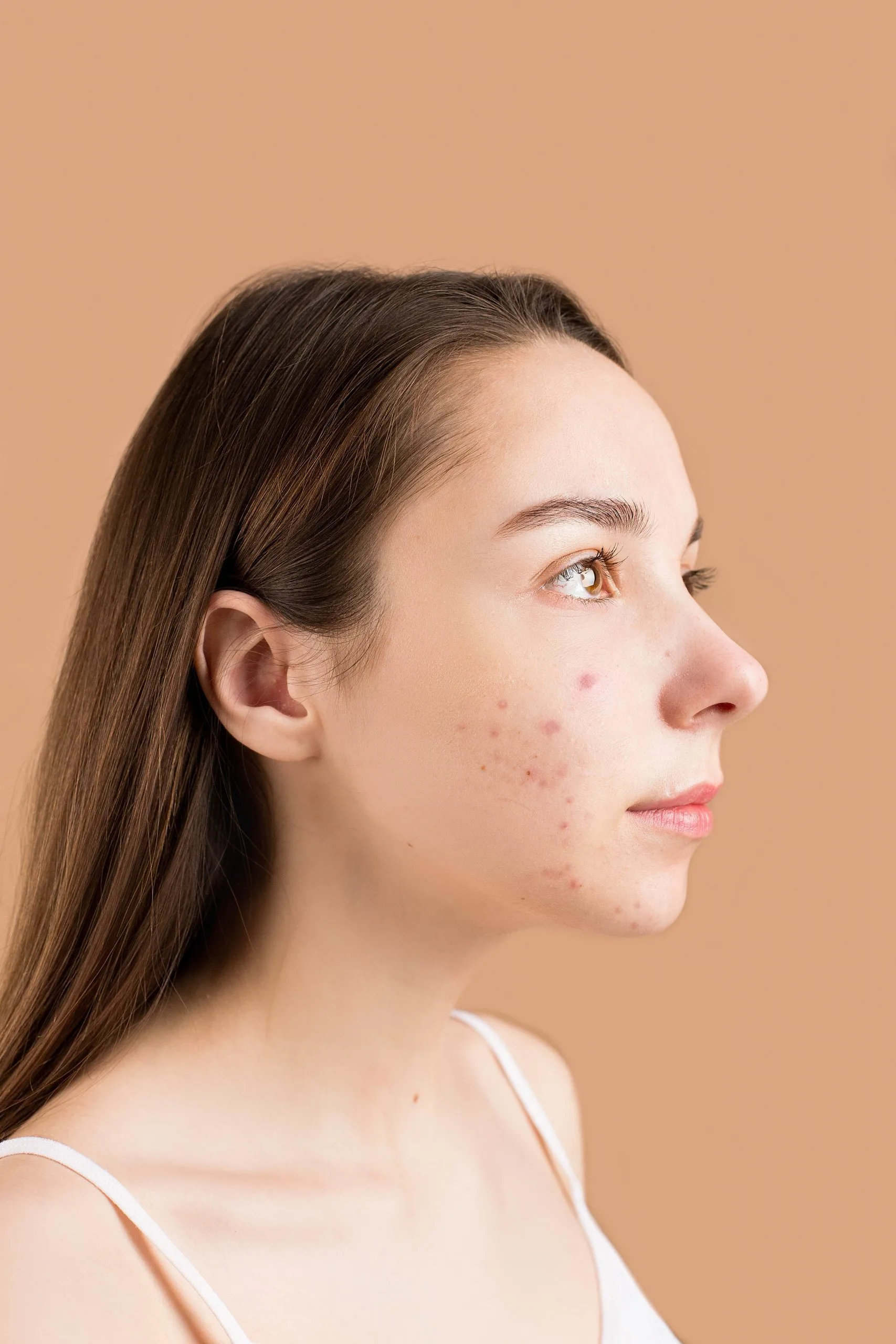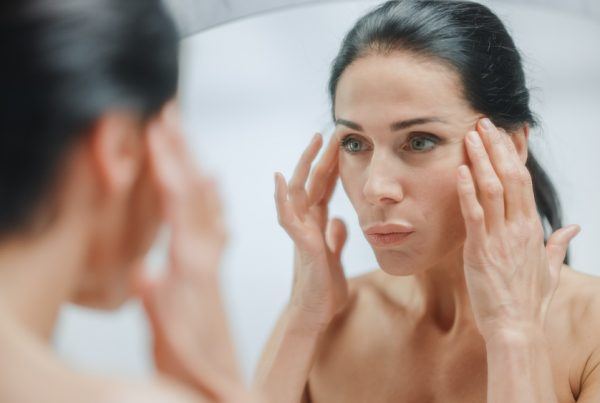Pimples, or acne, are a common skin condition that affects millions of people worldwide. They can be bothersome and impact self-confidence. Understanding the different types of pimples and how to effectively treat them is key to achieving clearer and healthier skin. Longevity Live Paid Content.
In this comprehensive guide, we will explore four common types of pimples and discuss various treatment options, including the use of Tretinoin.
4 Types Of Pimples
-
Whiteheads
Whiteheads are a common type of pimple. They usually appear in small, raised bumps with a white or yellowish head. They occur when pores become clogged with excess oil, dead skin cells, and bacteria, leading to a closed comedo. Whiteheads are typically non-inflamed and may appear as small, flesh-colored bumps on the skin.
Treating whiteheads involves gentle exfoliation to remove dead skin cells and unclog the pores. Proper cleansing with mild, non-comedogenic cleansers can help keep the skin clean and prevent further buildup.
Over-the-counter acne products containing ingredients like salicylic acid or benzoyl peroxide can be effective in reducing whiteheads by removing excess oil and promoting exfoliation.
In some cases, Tretinoin, a prescription medication available both online and through healthcare professionals, may be recommended for the treatment of whiteheads. Tretinoin works by increasing cell turnover and preventing the formation of new comedones.
However, it is important to consult with a dermatologist before using Tretinoin to determine the appropriate concentration and frequency of application for your skin type.
Maintaining a consistent skincare routine and avoiding excessive touching or picking of the whiteheads can help prevent further irritation and promote healing. Remember to be patient, as treating whiteheads may take time and require a combination of products and strategies tailored to your specific needs.
-
 Blackheads
Blackheads
Blackheads are a common type of pimple characterized by small, dark bumps on the skin. They occur when pores become clogged with a mixture of oil, dead skin cells, and bacteria, resulting in an open comedo. The oxidation of the trapped material causes the dark color of blackheads.
Treating blackheads involves regular exfoliation to remove dead skin cells and unclog the pores. Gentle extraction using comedone extractors or pore strips can help remove stubborn blackheads. Using skincare products containing salicylic acid or benzoyl peroxide can also be effective in reducing blackheads by removing excess oil and promoting exfoliation.
Tretinoin, a prescription medication available online and through healthcare professionals, may be recommended for the treatment of blackheads. Tretinoin helps regulate cell turnover, preventing the formation of new comedones and reducing the appearance of existing ones.
However, it is important to consult with a dermatologist before you get Tretinoin online to determine the appropriate concentration and usage for your skin type. Consistency in a skincare routine, proper cleansing, and avoiding excessive oil-based products can help prevent the formation of blackheads.
-
Papules
Papules are a type of pimple that appear as small, raised bumps on the skin. They are typically pink or red in color and do not have a visible fluid-filled head. Papules occur when the walls around the pores break down, leading to inflammation. They are often sensitive to the touch and can be a sign of mild to moderate acne.
Treating papules involves using topical treatments that help reduce inflammation and promote healing. Over-the-counter products containing ingredients like benzoyl peroxide or salicylic acid can be effective in reducing the size and redness of papules.
In some cases, a dermatologist may prescribe medications like Tretinoin. This is available online and through healthcare professionals, and it targets the underlying causes of papules and prevents new breakouts. Consistent skin care practices and avoiding harsh or irritating products can also help manage papules.
-
Pustules
Pustules are a type of pimple characterized by inflamed, raised bumps on the skin that contain pus. They are typically larger and more noticeable than papules and may have a white or yellowish center surrounded by redness.
Treating pustules involves gentle cleansing and the use of topical treatments that target bacteria and reduce inflammation. Over-the-counter products containing benzoyl peroxide or salicylic acid can be effective in treating pustules.
In more severe cases, a dermatologist may prescribe medications like Tretinoin, available online and through healthcare professionals, or antibiotics to combat the infection. It is important to avoid squeezing or picking at pustules to prevent further inflammation and potential scarring.
Consistent skin care practices and avoiding pore-clogging products can help prevent the formation of pustules.
Using Tretinoin for Acne Treatment
Tretinoin is a topical retinoid medication derived from vitamin A. It is commonly used in the treatment of various types of acne. Tretinoin works by speeding up cell turnover. It also reduces the formation of new acne lesions and prevents pore blockages.
It further has anti-inflammatory properties, making it effective in treating papules and pustules. When considering using Tretinoin for acne treatment, it is crucial to consult with a dermatologist.
They can assess your skin condition and provide a personalized treatment plan, including the appropriate concentration and frequency of Tretinoin application. If you decide to purchase Tretinoin online, it is essential to ensure the authenticity and safety of the product. Choose reputable online pharmacies or consult with your dermatologist for trusted sources. If you want to get Tretinoin online, we will also provide guidance on how to ensure its authenticity and safety.
Conclusion
Understanding the different types of pimples and their treatment options is essential in achieving clearer and healthier skin. Whether you are dealing with whiteheads, blackheads, papules, or pustules, there are various strategies to manage and treat these acne lesions.
Tretinoin is a valuable tool in the treatment of acne. However, it is crucial to use Tretinoin under the guidance of a healthcare professional to ensure its safe and effective use. Each person’s skin is unique, so finding the right treatment regimen may require some trial and error.
Be patient, consistent with your skincare routine, and consult with a dermatologist for personalized advice and guidance. With the right approach and treatment, you can effectively manage different types of pimples and enjoy healthier, clearer skin.
Disclaimer: The information provided on this blog is for informational purposes only and should not replace professional medical advice.





![women [longevity live]](https://longevitylive.com/wp-content/uploads/2020/01/photo-of-women-walking-down-the-street-1116984-100x100.jpg)








